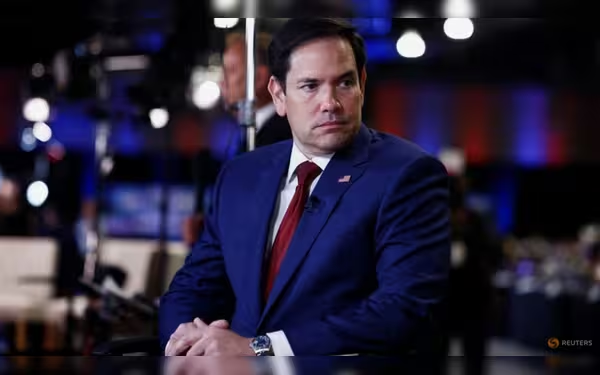Thursday, November 7, 2024 10:13 AM
Marco Rubio Proposes Measure to Block Chinese Firms from Evading US Tariffs
- Rubio aims to prevent tariff evasion by Chinese manufacturers.
- Proposed legislation targets production in foreign countries.
- Higher tariffs could impact consumers and boost domestic jobs.
 Image Credits: channelnewsasia
Image Credits: channelnewsasiaSenator Marco Rubio proposes legislation to prevent Chinese firms from evading US tariffs by relocating production to other countries.
In recent years, the trade relationship between the United States and China has become increasingly complex, particularly concerning tariffs. Tariffs are taxes imposed on imported goods, and they are often used to protect domestic industries from foreign competition. However, some Chinese manufacturers have found a way to circumvent these tariffs by relocating their production to other countries, such as Mexico, Vietnam, or Malaysia. This practice has raised concerns among U.S. lawmakers, particularly Republican Senator Marco Rubio.
On Thursday, Senator Rubio proposed a new measure aimed at preventing Chinese manufacturers from benefiting from favorable U.S. trade rules by setting up factories in these countries. He highlighted that this strategy allows Chinese companies to evade tariffs and flood the U.S. market with inexpensive goods, undermining American businesses and workers. Rubio, who serves as the top Republican on the Senate Intelligence Committee, has been vocal about the need for stricter regulations to ensure fair trade practices.
In March, Rubio introduced legislation that would extend higher tariffs to vehicles produced by Chinese automakers in foreign countries, including Mexico. This move is part of a broader effort to hold Chinese manufacturers accountable and protect U.S. industries from unfair competition. By closing loopholes that allow these companies to sidestep tariffs, Rubio aims to create a more level playing field for American businesses.
The implications of this proposed legislation are significant. If enacted, it could lead to increased costs for consumers, as companies may pass on the higher tariffs to buyers. However, it could also bolster domestic manufacturing and create jobs in the U.S. economy. The ongoing tug-of-war between protecting American interests and maintaining affordable prices for consumers is a delicate balance that lawmakers must navigate.
As the global economy continues to evolve, it is crucial for policymakers to remain vigilant against practices that undermine fair trade. Senator Rubio's proposal is a step towards addressing these challenges, but it also raises questions about the future of U.S.-China relations and the potential impact on international trade dynamics. Ultimately, the goal should be to foster a fair and competitive marketplace that benefits both American workers and consumers alike.













